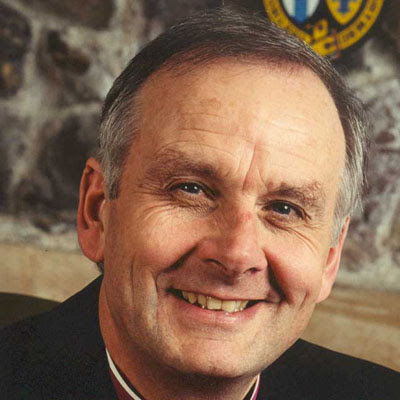 The Archbishop of Wales today urged churches to get more involved in politics and help put morality back at the centre of public debate.
The Archbishop of Wales today urged churches to get more involved in politics and help put morality back at the centre of public debate.
Market-driven policies, he said, in which everything, including human life, was given a monetary value, had not only led to the current economic crisis but had deeply damaged our sense of community and trust in public bodies.
He called on churches to raise the consciousness of congregations and communities and regain their passion for great causes and difficult moral debates. Every aspect of life, he said, was relevant to God so the church needed to make its voice heard on all issues.
Dr Barry Morgan was speaking to members of the Governing Body of the Church in Wales at the start of its two-day meeting at the University of Wales, Lampeter.
He said, “Despite the undoubted pain it has brought in its wake, the global recession may have helped bring us to a tipping point. Market-driven politics have been discredited.
“There is a groundswell of public concern about excessive self-interest and the breakdown of community. Since the 1960s, moral and ethical debates and passion for great causes have been increasingly frozen out of politics, which has helped to create the divided society we have today. To some extent the church has been complicit in this. The growth of ethnic and religious diversity, political correctness, the rise of atheism, our absorption in our own internal politics as well as the prevailing political atmosphere have all conspired to still our voices. Now we need to start lifting them again, raising the consciousness of our congregations and communities, challenging perceptions, looking at the bigger picture and helping to put the difficult moral debates firmly back on the political agenda.”
The church, said Dr Morgan, needed to keep its nerve in the face of those who claim religion has no place in politics. That, he said, was a matter of basic human rights.
He said, “In this country there are substantial communities of people, Christians and others, for whom religious belief is quite normative and defines who they are and how they think. And to argue as some do, that we should not even engage in public debate is to diminish our human rights. What we have to remember as well is that people of other faiths have no problems with Christians taking the lead in these matters. It is nervous public officials or aggressive secularists who have their problems.”
In his speech, as President of the Governing Body, the Archbishop also praised the Church in Wales’ Education Review which will be launched at the meeting tomorrow. He emphasised the importance of a spiritual dimension in all schools and expressed his concerns about the Welsh Assembly Government’s decision earlier this year to allow sixth-formers to opt out of school assemblies.
He said, “The law that requires a daily act of worship in schools is not a mandate to compel pupils to recite the Lord’s Prayer and be so inspired that they turn up at church the next Sunday. It is an invitation to experience what faith and commitment might mean. How vital it is, therefore, to feed the minds and hearts of the 17 and 18 year olds who stand on the cusp of adult life and all the responsibilities it carries. We must help them encounter a world that is not a bland secular wasteland, but a place of rich spiritual diversity where faith plays a fundamental role in moulding and shaping our lives…..
“The aim of religious education in schools and worship is not to defend and maintain the Christian faith, but rather to help people to understand what religion is and what it would mean to take up religion seriously. That’s an educational task and not an evangelistic one.”